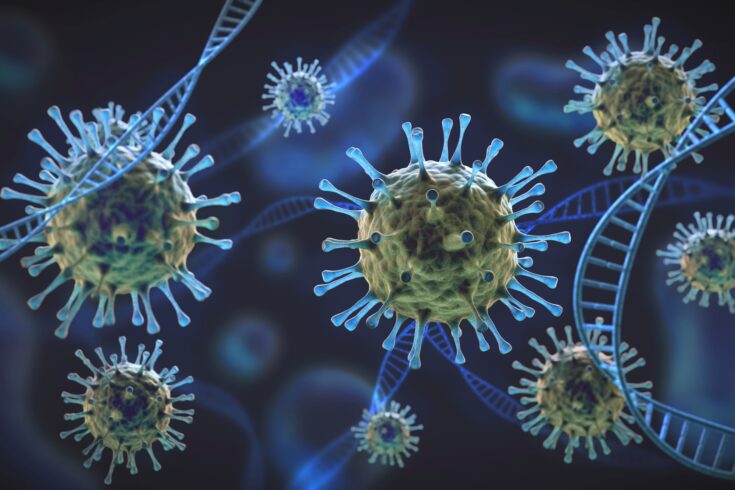Science and Technology Facilities Council
|
|
Laser study to understand virus spread
A new study using a powerful laser trapping technique will reveal how viruses hitch-hike on airborne droplets.

Credit: matejmo / Getty Images
The Science and Technology Facilities Council’s (STFC’s) Central Laser Facility (CLF) will investigate, in unprecedented detail, how viruses are transmitted and how this varies in different settings and environments.
With funding from the UK government to under the PROTECT COVID-19 National Core Study, which aims to utilise the UK’s top scientific resources to inform near and long-term responses to COVID-19.
The collaboration, led by Professor Neil Bourne of the University of Manchester, will involve teams from:
- the CLF
- Diamond Light Source
- Public Health England
- the Health and Safety Executive.
Advice will also be given from the Defence Science and Technology Laboratory (Dstl).
Studying the virus lifecycle
One possible source of transmission of COVID-19 is through the air, carried by aerosol droplets expelled by the host, for example, through a sneeze or a cough.
The research team will focus on these aerosol-based transmissions, and will map the behaviour of particles and inactivated viruses within a droplet.
The inactivated virus exhibits the same physical properties as the ‘real’ virus, but is non-infectious and therefore safe to study.
The team also aims to determine the fate of those viruses through the lifetime of the droplet, including how it last once deposited on a surface. The study will also look at how the droplets impact the efficacy of a facemask.
Trapping the virus mid-air
To achieve these science goals, Dr Andy Ward at the CLF will use a combination of techniques available at the CLF’s Octopus Imaging Facility.
One of these techniques involves levitating a droplet containing inactivated virus particles in mid-air using laser beams. These delicate laser tweezers, known as optical trapping, will allow him to study the virus inside droplets without them interacting with any surfaces.
Dr Andy Ward runs the CLF’s Optical Trapping Facility and has nearly 20 years of experience in capturing and levitating individual micro-droplets using laser beams.
Dr Ward yesterday said:
In the past, we have combined our expertise in droplet studies with the fluorescent microscopy and spectroscopy techniques at the CLF Octopus facility to learn more about respiratory therapy, pollution and cloud chemistry. Our combination of techniques will allow us to follow the behaviour of 100 nm particles and viruses within a droplet.
We also aim to see where the virus comes to rest when the droplet, for example, evaporates. This will help us to gain a greater insight into how virus interacts with the world around us.
Further information
Find out more about Diamond Light Source’s response to COVID-19.
About the PROTECT study
The PROTECT COVID-19 National Core Study on transmission and environment is a UK-wide research programme improving our understanding of:
- how SARS-CoV-2 (the virus that causes COVID-19) is transmitted from person to person
- how this varies in different settings and environments.
This improved understanding will enable more effective measures to stop transmission, saving lives and getting society back towards ‘normal’.
Led by the Health and Safety Executive (HSE)’s Chief Scientific Adviser, Professor Andrew Curran, this critical work is being delivered by around 200 researchers from 20 institutions across the UK.
The PROTECT study began in October 2020, as part of the COVID-19 National Core Studies programme spearheaded by UK Government Chief Scientific Adviser Sir Patrick Vallance. It is currently funded by HM Treasury until March 2022.
Find out more on the PROTECT website, follow @PROTECT_NCS on Twitter, or sign up for updates.
Original article link: https://www.ukri.org/news/laser-study-to-understand-virus-spread/
.gif)

.gif)